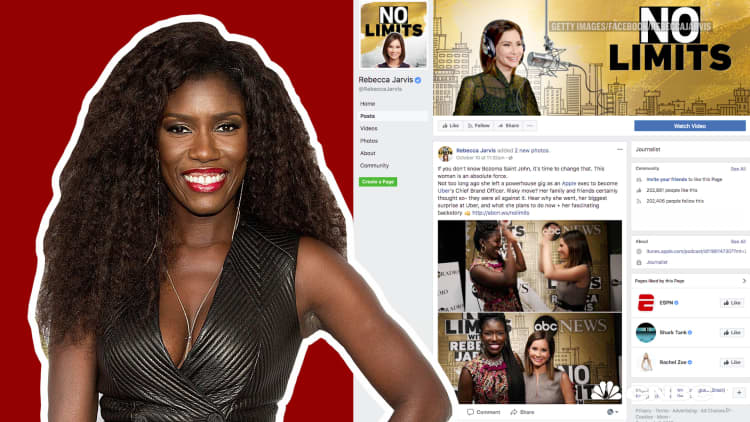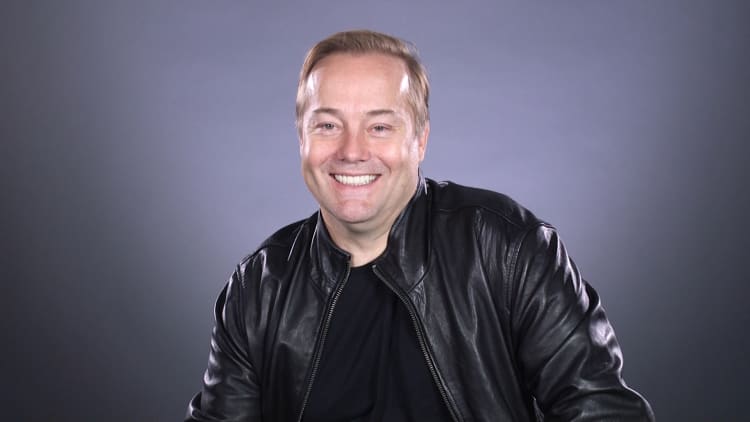Uber CEO Dara Khosrowshahi appears to be doing some soul-searching amid the ongoing public backlash against Silicon Valley over issues ranging from data privacy to online harassment and misinformation.
Khosrowshahi himself is among the Silicon Valley CEOs dealing with that backlash, as he tries to rebuild Uber's reputation following a string of scandals at the massive ride-hailing company, which reportedly could be valued as highly as $120 billion in an IPO next year.
In a recent interview with CNN, Khosrowshahi talked about the idea of reinvention as well as the need for America's tech leaders to learn to "take responsibility" for what happens on the tech platforms they are running, which could include anything from monitoring offensive or misleading posts on a social media site to cracking down on sexual harassment and assaults committed by Uber drivers or passengers.
Tech companies need to abandon their previous laissez-faire approach to policing their own platforms, Khosrowshahi tells CNN. "I think the hypothesis in the past was we're building a platform and there are good people and bad people, and we're not responsible for what they do on the platform," he said in the interview. "We didn't want to be responsible because we don't want to be the censor. We don't want to tell you what to say. ... It was an ethical decision."

It's true that many Silicon Valley companies have attempted to walk the thin line between protecting freedom of speech on their platforms and silencing or removing abusive users. But times are changing, and the calls for companies like Facebook, Google and Twitter to crack down on people who use their platforms for nefarious purposes are growing louder and louder.
"The platforms are extending into every part of our life and creating superpowers within them," Khosrowshahi tells CNN. "If you communicate something in the old world, you can get it to five people. These platforms allow you to communicate to a million. That realization has created, I think, now the responsibility for all of the platform builders to take responsibility for the content on your platform."
In Uber's case, Khosrowshahi, former CEO of Expedia, was hired as CEO in 2017 to replace founder Travis Kalanick and reshape the company's image following allegations of rampant sexual harassment and discrimination at Uber. Meanwhile, Uber has also been criticized for not doing enough to prevent sexual harassment and assault on its popular ride-hailing platform, whether it is allegedly committed by drivers or passengers.
Under Khosrowshahi's watch, Uber has made some strides in those areas, including hiring more women and firing over 20 employees after an internal investigation into sexual harassment complaints. The company has also developed a system for tracking sexual harassment and assault claims that stem from Uber rides. Uber also said in May that it will allow users who claim to have been sexually assaulted by Uber drivers to sue the company, rather than forcing them into arbitration. (In April, a CNN investigation found that over 100 Uber drivers in the U.S. have been accused of abusing or assaulting passengers over the past four years.)
Clearly, these are issues that Uber is still trying to tackle, and Khosrowshahi says that other Silicon Valley companies need to come to terms with the fact that they are at least partly responsible when their tech platforms are used to do harm.
But, Khosrowshahi says he's happy to be at Uber and he's optimistic about the tech industry overall. He believes that leaders across Silicon Valley will "grow up" and that we will soon see "technology companies truly understand that we are one and intertwined with society."
Don't Miss: Uber CEO: What scares me the most is how much the company depends on me
Like this story? Subscribe to CNBC Make It on YouTube!


